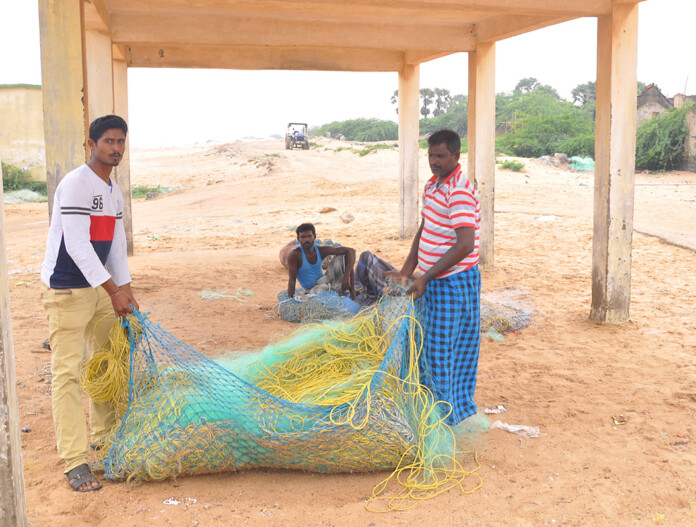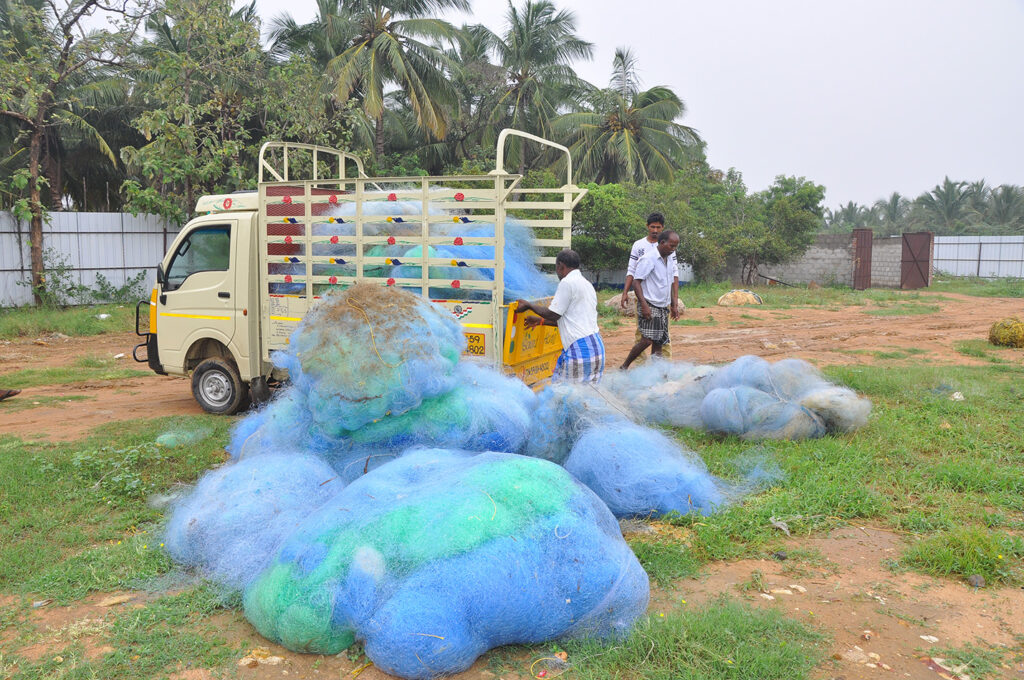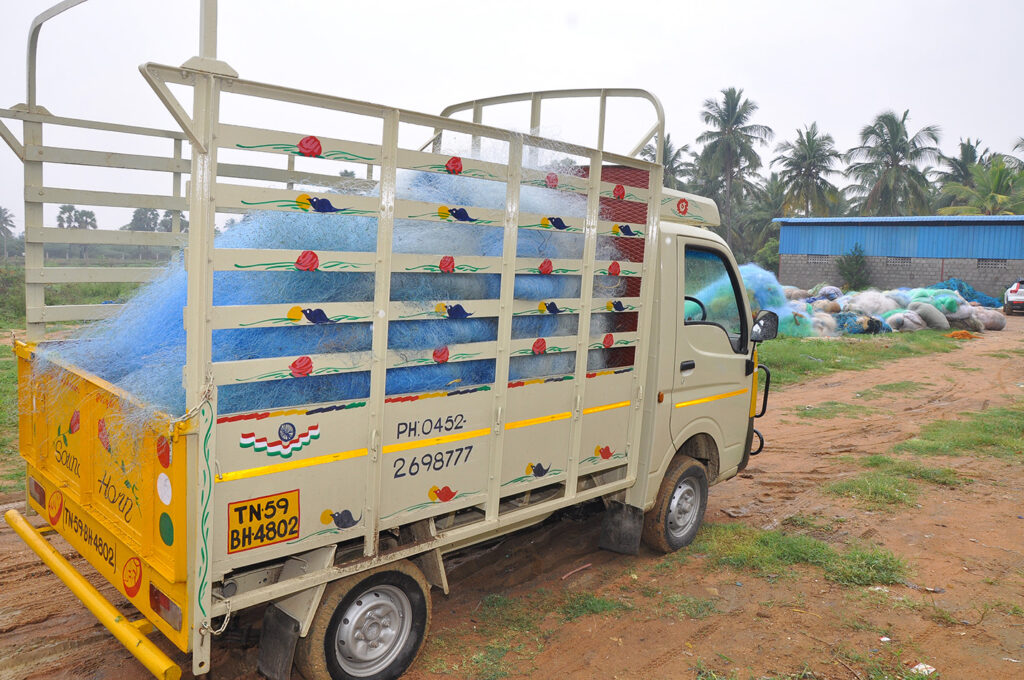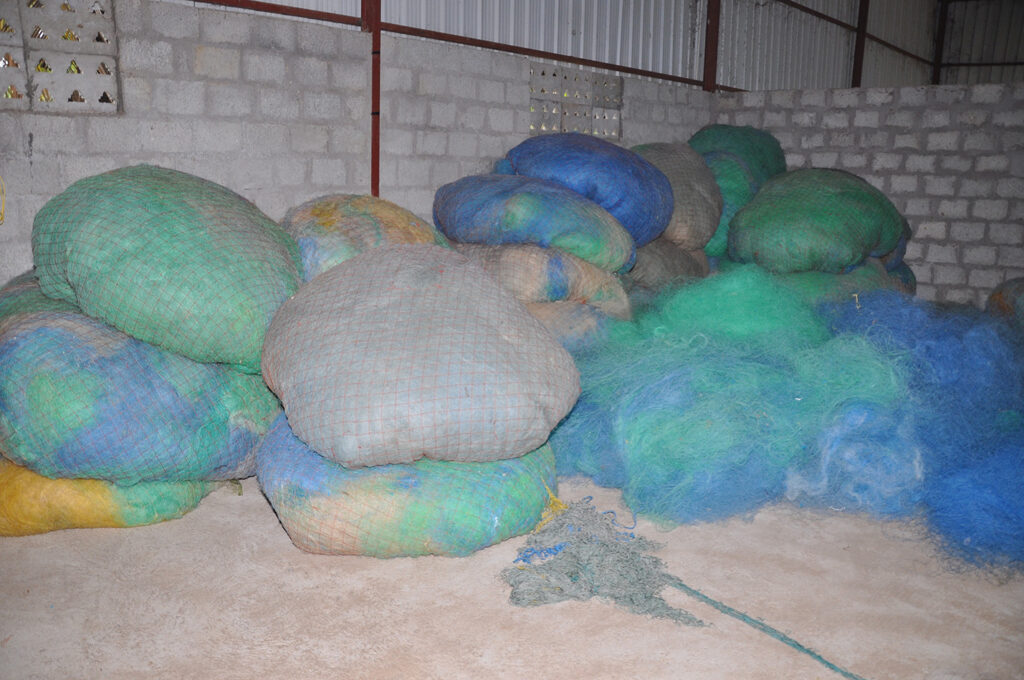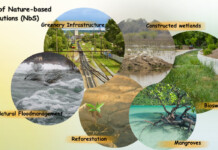These fishing nets can cause harm to marine life causing entanglements of marine life. It will continue to ensnare and kill millions of animals including turtles, whales, and fish, every year. These abandoned fishing lines become smaller pieces of plastic that marine animals often mistake for food which can harm internal organs and expose them to toxic chemicals. Most modern nets are made of nylon or other plastic compounds that can last for centuries and often these fishes become human food, and humans then get microscopic plastic in their systems.
A recent study in Kerala revealed that about 21% of fishing gear is lost, abandoned, or discarded annually, out of which 60% constitute lost gear. This estimated quantity of derelict gear entering the world’s oceans amounts to approximately 1.14 million tonnes per year. The effect is devastating, with about 66% of marine animals getting entangled in these ghost nets.
In 2023, Envalior was created out of two established global materials players, DSM Engineering Materials and LANXESS High Performance Materials, and Envalior started collecting abandoned fishing nets along the southern coast of India. Through collaboration with local supplier partners, Envalior hires local communities to collect, clean, and transport the nets to its factories.
Envalior has been collecting discarded fishing nets for one and a half years, providing a vital source of income to the local communities. The company’s factories then transform the nets into a high-performance material called Akulon® RePurposed, a glass fiber-reinforced, recycle-based polyamide. By reutilizing discarded fishing nets, Envalior takes part in cleaning the oceans and provides jobs, enabling new skills and knowledge for local communities.
Currently, Envalior’s fishing net project has made a significant environmental impact, collecting and recycling over 3,000 tons of polyamide 6 ghost fishing nets per year, with a monthly collection of over 125 truckloads (approximately 250 metric tonnes) and an annual upcycling of over 3,000 metric tonnes. The project employs over 300 people across the entire process, from sourcing to shipping, and ensures a 100% sustainable supply of feedstock from abandoned fishing nets.
The resulting product, Akulon® RePurposed, performs nearly on par with virgin materials and has various applications, including surfboard accessories, furniture, and industrial uses. By focusing on Indian coastal regions, with plans for expansion, Envalior is reducing marine plastic pollution, promoting sustainable practices, and generating employment, making a substantial contribution to a more environmentally friendly future.
Future Plans
Envalior aims to expand its collection of fishing nets and promote the use of this material in other industries, making a significant impact on reducing marine plastic pollution. These efforts demonstrate that with collaboration and innovation, Envalior can mitigate the devastating effects of ghost gear and protect our oceans.
Through education and awareness campaigns, Envalior seeks to promote sustainable fishing practices and collaborates with several industries to drive systemic change. Additionally, the company plans to empower local communities economically, advocate for policy changes, and establish a robust monitoring system to track progress. By achieving these goals, Envalior hopes to significantly reduce marine plastic pollution, protect marine life, and promote a more sustainable future.


